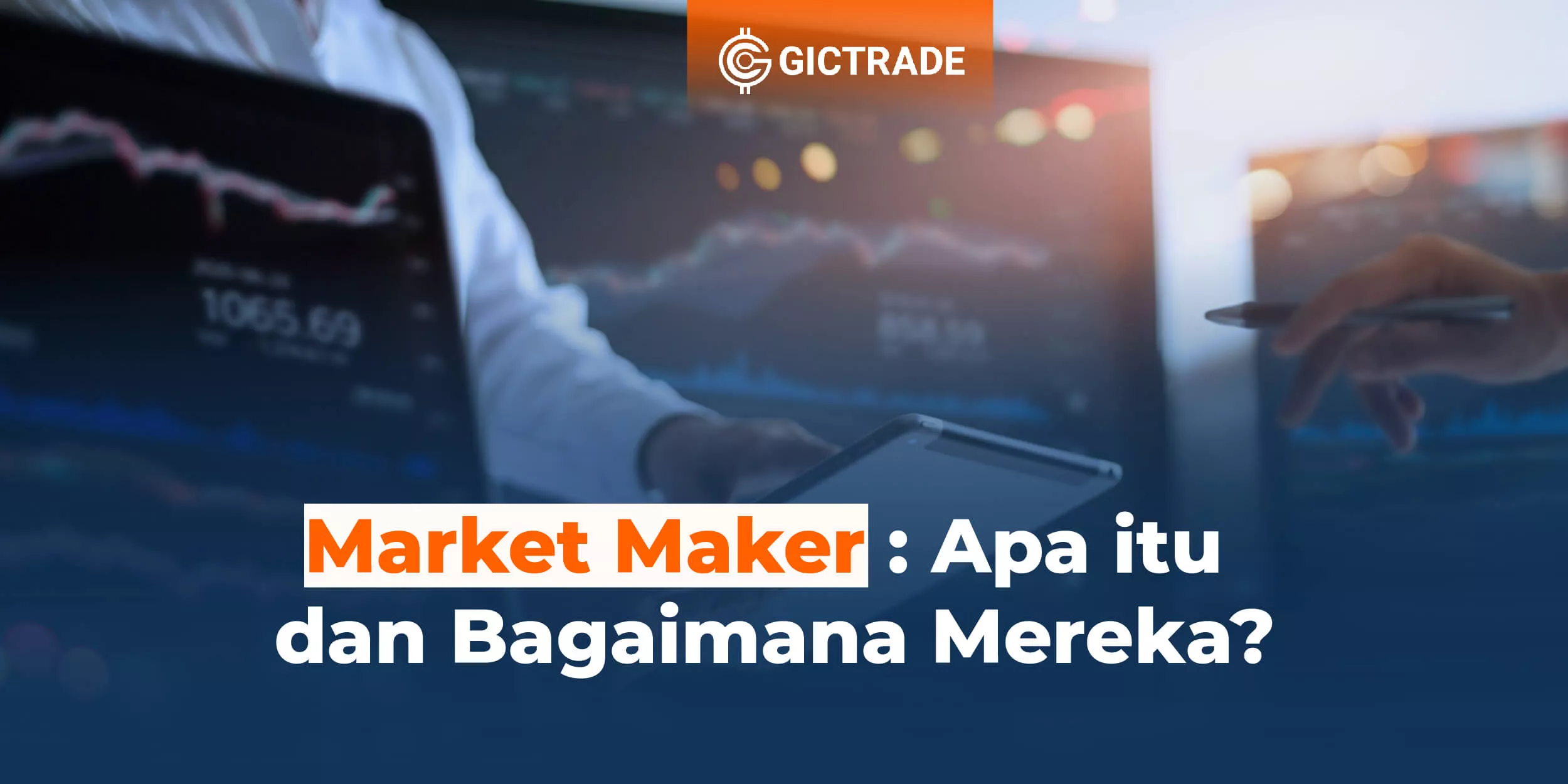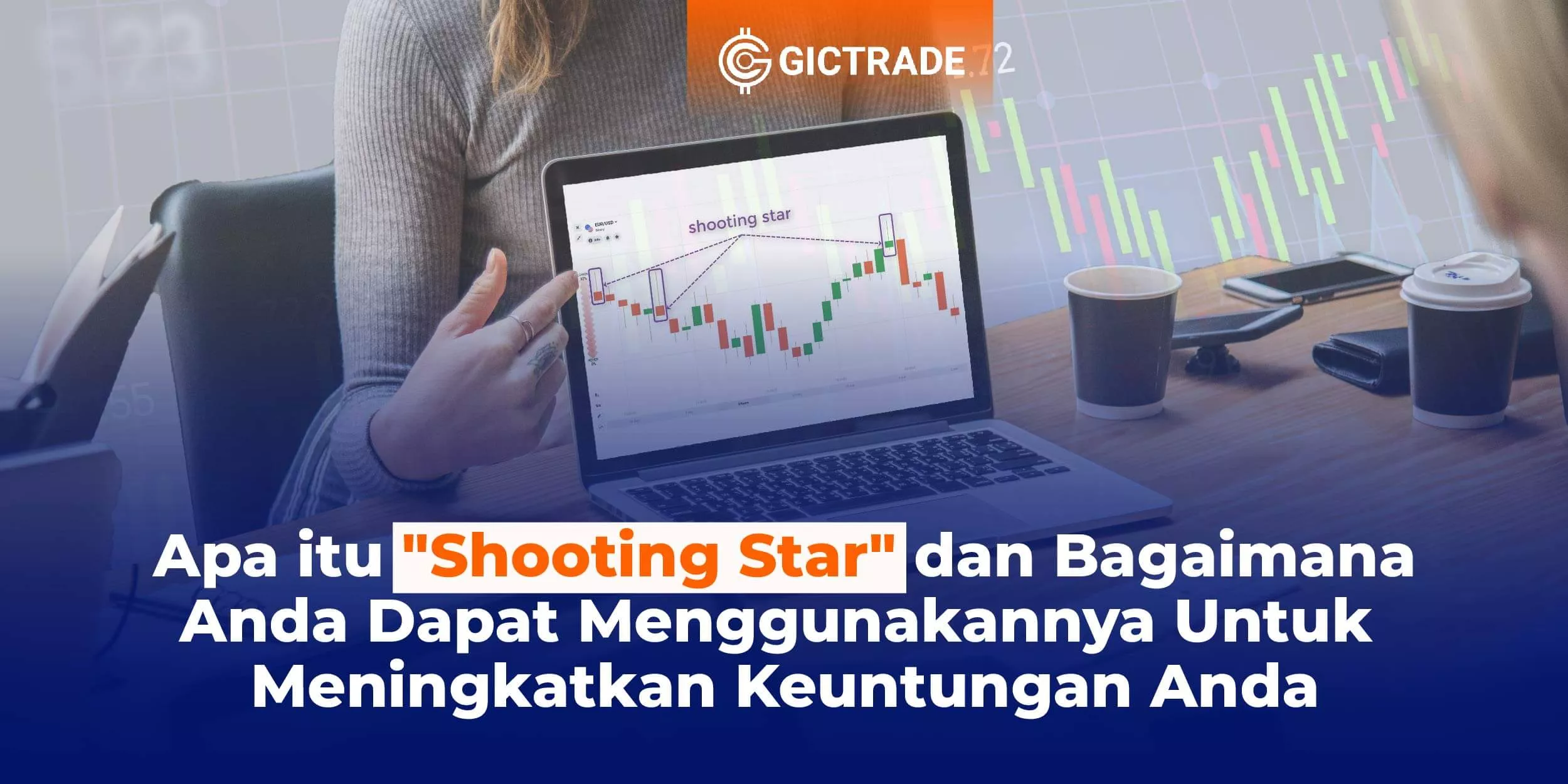.webp)
The Role of Market Makers in Financial Markets
Market Maker Function in Financial Markets
-
Helps reduce price spreads
Price spread is the difference between the ask and ask price in the market. The smaller the price spread, the easier it is for investors to buy or sell financial instruments. Market makers help narrow the price spread by offering ask and ask prices that are closer to each other. -
Providing liquidity in the market
Market makers are responsible for providing liquidity in the market. This is done so that investors can easily buy or sell financial instruments they own. -
Maintaining market stability
As a party that provides liquidity in the market, market makers play an important role in maintaining market stability. They can take action if there is a sudden price fluctuation and damages market stability. -
How Market Makers Work?
Market makers buy and sell financial instruments in the market at a specific price. They buy at the bid price and sell at the ask price. The bid and ask prices are determined by the market maker based on supply and demand in the market.
How to choose a market maker
-
Check reputation
Before choosing a market maker, make sure to check its reputation first. Find out if the market maker is registered with an official financial institution and has a license to operate in the financial market. You can also look for reviews from other investors to find out their experiences with the market maker.
-
Check liquidity availability
Make sure that the market maker you choose has sufficient liquidity available in the market. This will ensure that you can easily buy or sell the financial instruments you own.
-
Check the types of financial instruments offered
Make sure that the market maker you choose offers the type of financial instruments you want. For example, if you are interested in forex trading, make sure that the market maker offers the currency pairs you want.
-
Check the price spread
Check the price spread offered by the market maker. Choose a market maker that offers competitive price spreads so that you can maximize your trading profits.
-
Check trading fees
Make sure that the trading fees charged by the market maker are not too high. Trading fees that are too high can affect the profits you get from trading.
-
Check the technology used
Check the technology used by the market maker to maintain market stability. Market makers that use advanced technology can provide better services and help maintain market stability.
Trading strategy with market maker
-
Use technical analysis
Technical analysis can help you identify trends and patterns in price movements in the market. By using technical analysis, you can predict price movements and make wiser trading decisions. -
Pay attention to the price spread
Pay attention to the price spread offered by the market maker. Choose a financial instrument that has a smaller price spread so that you can maximize your trading profits. -
Use leverage wisely
Leverage can help you increase your trading profits, but it can also increase your risk of loss. Use leverage wisely and make sure you have a good risk management strategy. -
Check liquidity
Make sure that the financial instrument you are trading has sufficient liquidity. This will ensure that you can easily buy or sell the financial instrument. -
Check trading time
Check the trading hours of the financial instrument you choose. Some financial instruments may have limited trading hours, so you need to pay attention to the trading hours to be able to make wiser trading decisions. -
Follow financial market news
Follow financial market news to get the latest information on the price movements of financial instruments. Financial market news can help you make wiser trading decisions.
How Market Makers Work?
-
Setting the price spread
Market makers set the price spread, which is the difference between the buy price and the sell price. This price spread reflects the risk borne by the market maker in providing liquidity in the market. The greater the risk borne, the greater the price spread offered. -
Providing liquidity
Market makers are responsible for providing liquidity in the market by buying and selling financial instruments. They are always ready to buy or sell a particular financial instrument, regardless of whether there are other buyers or sellers in the market. -
Facilitating trade
Market makers facilitate trading by providing financial instruments that are traded in the market. They connect buyers and sellers by providing a buy and sell price. If there is a higher demand from sellers than buyers, the market maker will buy the financial instrument from the seller and resell it in the market. -
Using market information
Market makers use market information to make more informed trading decisions. They gather information from various sources to analyze the price movements of financial instruments. Using this information, market makers can make more accurate trading decisions. -
Maintaining market stability
Market makers are also responsible for maintaining market stability by controlling the price movements of financial instruments. They can take action to prevent excessive market volatility and ensure that the prices of financial instruments remain stable.
Benefits of trading with market makers
-
Better liquidity
Market makers are always ready to buy or sell a particular financial instrument, regardless of whether there are other buyers or sellers in the market. Thus, market makers can provide better liquidity in the market, allowing traders to open or close positions more easily. -
Lower price spreads
Market makers offer lower spreads compared to other brokers. This is because market makers can buy and sell financial instruments at better prices through hedging activities, which allows them to offer lower spreads to traders. -
Fast execution
Market makers are able to provide faster trading execution compared to other brokers. This is because they have direct access to the market and can provide prices instantly to traders. -
No requotes
Market makers do not need to quote prices from third parties and there will be no requotes when traders trade. This can help traders to trade more smoothly and efficiently. -
Better trading facilities
Market makers provide various better trading facilities, such as higher leverage, lower margins, and faster trade execution. All of this helps traders to trade more effectively and efficiently.
Risiko trading dengan market maker
-
Market risk
Market makers can manipulate prices to create profits, so there is a market risk that needs to be taken into account. The prices offered by market makers may not always reflect the actual market price, so traders must be careful in making trading decisions. -
Liquidity risk
Since market makers are the ones who provide liquidity, there is a risk that the liquidity provided by market makers could be reduced or even lost if they experience financial problems. If this happens, traders may have difficulty closing their positions. -
Conflict of interest
Market makers can have a conflict of interest with traders, as they can be on the opposite side of a trader’s trade. Market makers may try to manipulate prices to make a profit for themselves, so there is a risk of a conflict of interest to be aware of. -
Stop out too soon
Market makers can set stop outs that are too early, causing traders to lose their funds quickly. Stop outs that are too early can occur if market makers set margin calls that are too low or tighten margins too quickly. -
Difficulty in obtaining information
Since market makers are the ones who create the market, they may not provide enough information regarding price and liquidity. This can make it difficult for traders to make the right trading decisions.
Meet GIC, the Best Market Maker Platform in Indonesia
Not familiar with Global Investa Capital? Let's introduce ourselves. Unlike other conventional brokerage firms, GIC through the GICTrade platform provides an alternative for traders who want to avoid high trading costs. GICTrade is a peer-to-peer trading platform that connects traders with market makers. So, what makes GICTrade so special? As a platform that connects traders and market makers, you, as a prospective client, have the opportunity to choose your role, whether you want to be a trader or a market maker. GICTrade acts as a trading facility provider with the aim of reducing costs and helping to optimize profits for traders and market makers, while creating a fair trading environment. Trader benefits include being free from commission fees, swap fees, and low spreads due to the presence of market makers as liquidity providers. Regarding the legality aspect, all transactions from GIC clients, both traders and market makers, are reported to the Jakarta Futures Exchange (BBJ) and the Indonesian Futures Clearing House (KBI) based on transactions that occur in segregated accounts operated by licensed brokerage partners in Indonesia, namely Trijaya Pratama Futures and Capital Megah Mandiri. No need to worry if you are a beginner. Global Investa Capital is the first and only company in Indonesia that provides a variety of service products in a single trading ecosystem that will help and facilitate you in investing activities. With blockchain technology as its basis, you can enjoy all the convenience offered by GIC services.
Are You a Beginner Trader But Expecting Maximum Profit Results? GIC Market Maker is the Solution!
For you beginner traders who want to generate passive income and find it difficult, or have other activities, now there is a solution! Market Maker is here to open up new Passive Trading business opportunities in the futures market with a revolutionary peer-to-peer platform.
For the first time, clients can become market makers or liquidity providers (LPs) for traders. Previously, trader transactions involved large companies as intermediaries, but now traders interact directly with market makers on this platform.
Through the peer-to-peer platform, GICTrade has successfully overcome two major problems in the traditional broker system, namely conflict of interest and high trading costs. With low trading costs and no conflict of interest, GICTrade creates a fair trading environment and has the potential to provide maximum profits.
GIC provides access to anyone, including retail traders, professional traders, aspiring brokers, or experienced ones, to participate on the “other side”. GIC Market Maker provides a number of advantages for users:
- Diversify risk across markets and lot sizes.
- Take advantage of spread differences.
- Maintain a 'neutral' market position without dependence on market direction.
- No setup and maintenance fees.
With all these advantages, GIC Market Maker is an attractive choice for those who want to engage in Passive Trading with more flexibility and efficiency.
What are the Benefits of Joining as a Market Maker at GIC?
- One-to-many system. Every transaction made by an active trader will be divided proportionally to all Market Maker accounts based on equity (capital). Market Maker plays a passive role and only opens positions when there are active traders making transactions.
- Due to its passive nature, you do not need to constantly monitor charts and allocate special time for trading.
- To become a Market Maker client, you only need to make a minimum deposit of 5,000 GICT, and you will be able to function like a trading company without having to face complicated requirements.
No need to wait any longer! Now is the time to join GIC Market Maker and enjoy its many benefits. Also, make sure to trade with a regulated platform.
 Last:
Last: 






